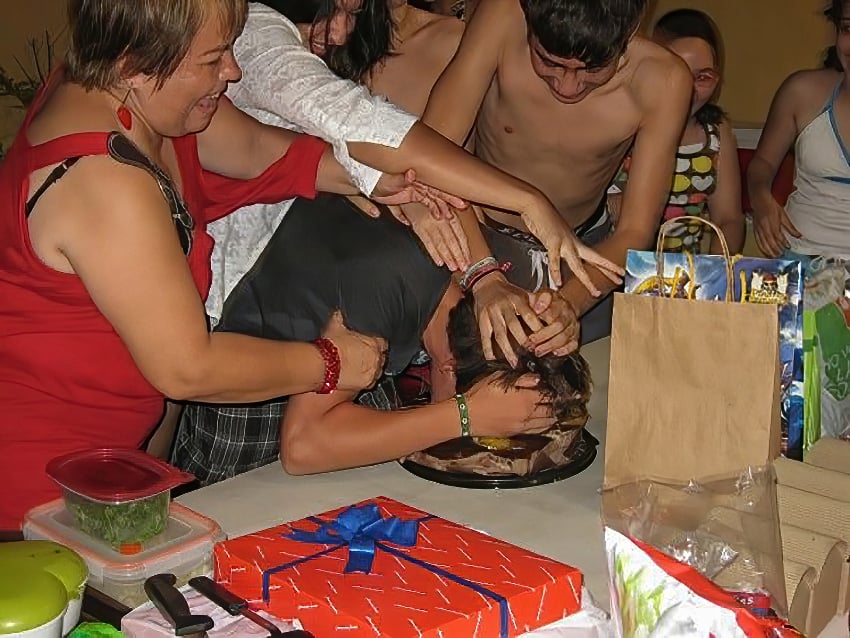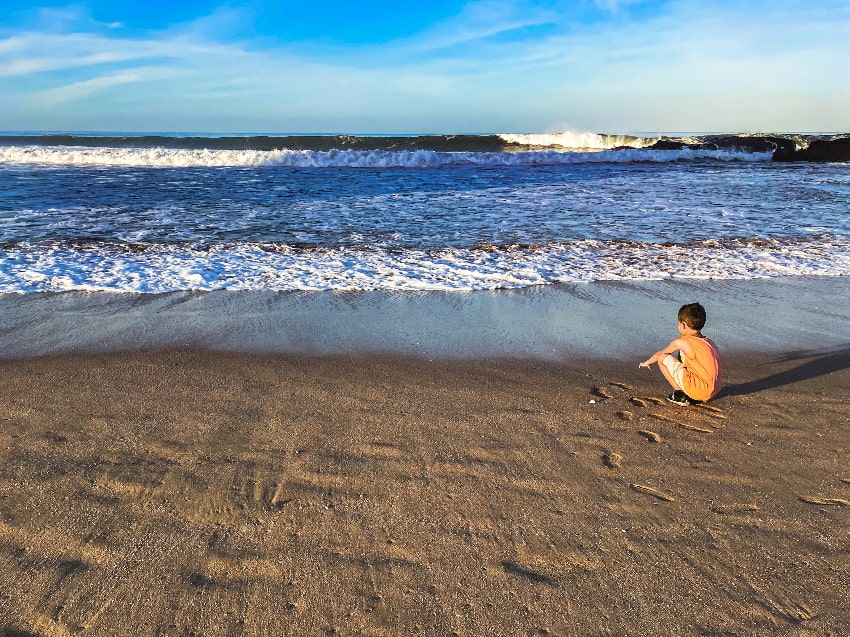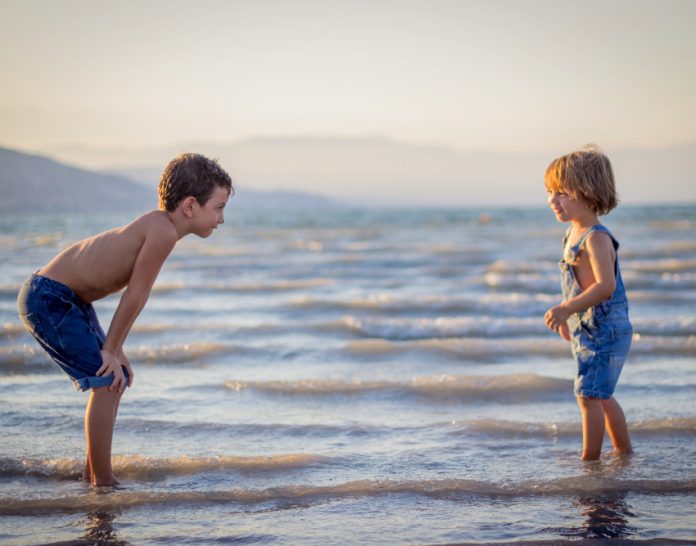Raising your kids abroad can enrich them emotionally, intellectually, and socially. Many studies show that some bilingual, multicultural people have longer attention spans, are more creative, patient, and empathetic, and are often better at communication, conflict resolution, making friends, learning and retaining information, and multitasking.
We decided to raise our twelve-year-old son in Mexico and have been so grateful we made the transition! We never wanted to leave our vacation home in Mazatlán — the blue ocean views, the lulling sound of the waves, hospitable, fun-loving people, settling our toes into the sand on the beach while munching on fresh-grilled fish and a tropical cocktail — and now we wouldn’t have to!

We have lived full-time on the west coast of Mexico for fifteen years. Our fresh-out-of-primary-schooler has grown to adulthood here. When Spanish speakers meet him, they believe he is Mexican; although he is a native English speaker. I’ll give you the good, the bad and the ugly (major life changes are rarely only roses and confetti) and tips to survive and thrive. Remember, each relocation experience is unique, but here is what I’ve learned from my own.
Preparing to Move
We spent a year planning our move, which gave the three of us time to study Spanish, discuss the cultural adjustment process and how we’d respond to challenges as a family, how best to support one another as a team, learn about Mexican values and culture, downsize our household, and choose a school.
Our son Danny was about to enter sixth grade when we decided to move. He was a typical little American boy, and, living in Kansas, his worldview was limited to whether he would attend KU or KState. We felt it crucial for his life success to raise him with a “citizen of the world” mindset, and at least a second language and culture.
Danny did not want to move! He loved his friends and his life. He did not want to learn Spanish or be a gringo. We found a delightful tutor and cajoled him into meeting twice a week. He had studied Spanish in school since kindergarten, so he could count to a few thousand and name the parts of the body and basic foods; that was about it. We lived for months with Post-it notes stuck to everything in our house, teaching us new vocabulary. We also asked the school to introduce us to a couple of foreign families to serve as our mentors. Their friendship and advice during that first year were invaluable.
As we departed the Midwest a bit over a year later, we imagined the boating, surfing, and street soccer in our son’s future and the new adventures each day would bring. Excitement reigned, at least for the parents. The “honeymoon stage” of cultural adjustment was in full bloom as we sang to Mexican music, purchased new items for our now-permanent home, and got our son ready for school. We walked everywhere despite the heat and humidity of June and July. Life was a complete adventure, and every new person we met was a potential new friend.
Initial cultural adjustment
The first glimmers of culture shock came early but were part of the adventure. We had ordered Persian blinds for the windows, and they didn’t work. We had to call the vendor several times to get her to deal with the problem. She refused to fix them and blamed us for not knowing how to properly use blinds! Another early surprise was taking Danny in for a physical before the start of school. He was twelve, and they loaded him up with condoms! That was quite a shock but made for a good joke when he and his new friends converted them into water balloons. On the first day of school, Danny’s teacher had the kids introduce themselves as their favorite animal. With insufficient Spanish to complete the task, he used the word “pollo” and walked around squawking like a chicken. His humor and improvisation seemed to win over the class.

The honeymoon was short-lived, though we still feel the thrill and joy of living here. The stress of setting up a new home in a new place and our son entering school in an entirely foreign system were a lot to handle. We quickly entered the “Initial Culture Shock” phase: how do we negotiate for what we need and navigate the surprises we face daily? How would I survive the wrath of a 12-year-old while trying to help him with his homework?
Other shock moments included the parents of Danny’s schoolmates calling our house at midnight and even 1:00 a.m. What the heck?! School started early; we woke up at 5:30 a.m. When did they sleep?! Daniel received his first invitation to a birthday party a couple of weeks into school. We knew most Mexicans tend not to pay close attention to the clock, especially for parties. So, we arrived at the house an hour later than we were invited. No guests were there. The housekeeper told us the mother was upstairs showering and that Danny’s schoolmate would be here shortly. We sat alone in the entryway for two hours before other guests arrived. The party ended up being wonderful, and Danny thoroughly enjoyed it. The key during this stage was to approach the differences with a learning mindset, a smile, or a chuckle and not to characterize the experience as an “error.” We were absorbing how things are done in Mazatlán.
We were told kids should eat breakfast at home before 7:00, and they would have brunch at school around 10 or 11. The trouble was when Danny would get off the school bus at about 3:00 he’d be famished! “Comida” had to be ready or he would be hangry in a way I did not like. About six weeks into school, we figured out why—he hadn’t been eating brunch! We’d given him money to buy it every day but as he explained, when they broke for recess the kids all mobbed the lunch room. He couldn’t figure out how to order, or how to pay. “Mom, it’s complete chaos, so I just go straight to recess instead.” Luckily, he’d made a new friend in Raul, whose mother was the lunch lady. She mentioned to Raul that she’d never seen Danny eat lunch and Raul taught him how to get food from the school lunchroom! Now our kid didn’t arrive home starving at 3 p.m.!
The most memorable incidents as a parent during this period of initial cultural adjustment ironically involved other parents. The first event occurred at school. We were told to go to school to purchase books for our children for the year. Once there, they told us the books had not arrived. This happened three times over, so lots of wasted time. Practical, US American working mother me was wondering, “Couldn’t they text or call to let us know before we take off work and head over to school?” Finally, after the kids had been in classes for nearly two months without books, they arrived. It was pandemonium! Grown women (yes, only mothers) pushed and shoved one another to grab the books they needed. My jaw dropped to the ground, and I was honestly a bit traumatized. I would not push and shove, so I didn’t get books for our son. I went home and cried my eyes out. This was my first taste of how kind, friendly, dignified, and well-dressed parents can behave when they need something for their kids. My son, new to the country, the school, and the language, had to wait nearly to the end of the semester to get his books.

During Danny’s birthday party, there was a fun little culture shock moment. In this case, it was our son’s first experience of “la mordida.” The kids sang him “Las Mañanitas” followed by “Happy Birthday” in English, and then two or three of them slammed his head down into the chocolate cake so hard that it broke the cake in half! I was prepared with my camera, and his incredulous, hurt look when he came up for air was heartbreaking yet priceless! How affection is shown in different contexts can vary greatly.
Getting used to school
There were things about school that we never grew to like, but it was how things were done here, so we accepted them. We had enrolled Danny in a private school with a couple of classes per day in English. We did this since he didn’t yet speak Spanish well, despite the year of tutoring and the years of public elementary school Spanish classes. Many of the teachers at the school could speak English and help our son out. One of them tutored him several times a week, which was a blessing as she understood the homework and the system. Danny wanted to ride his bike to school — five minutes from home. No way; the school would not permit any student to do that. They had to get a ride or take the bus.
Keys to successful early adjustment
In hindsight, which decisions helped our son thrive during the Honeymoon and initial phases? To me, it is that we all committed to learning Spanish. I have had quite a few parents share their fear that their child will lose their native tongue, grow up with an accent, or be unable to write and discuss in their native tongue at a university or professional level. If at least one parent in the home interacts with the child in the native language, there is nothing to fear. Trust that your child’s brain and soul are strong and resilient enough to handle multiple languages and cultures. Every child knows that rules vary between two parents or when visiting Grandma’s house. It is the same way with different cultures; children adapt naturally, faster, and more effectively than adults. Six months into our relocation, the light bulb went on for Danny. He woke up one morning and told me he no longer needed help with his homework. He understood what was going on at school and in his class. It was a wonderful day!

Hiring competent tutors is also crucial. Trust your child while maintaining open communication. As a family, be prepared to hear a lot of judgment: taxi drivers, teachers, friends, and even strangers will criticize your parenting decisions. Listen to find their truth; if it is not helpful, discard it. Don’t waste your energy beating yourself up if their comments don’t fit your objectives. A bicultural or multicultural child is different than a monocultural one.
Work with your family. Recognize one another’s strengths and talents, and shore up one another’s weaknesses. Life abroad can strengthen your family’s love and commitment, but the stress can be a lot. In our case, we frequently discussed our adaptation: what we enjoyed, what bothered us, what we learned, and how we could help each other. We instituted “Palapa Fridays,” when we’d head to a restaurant on the beach to just rest and relax after a hard week of learning and adjusting.
Finally, know that often, things will not happen as you expect them to. Be ready to be surprised. Go with the flow and find a way to hold on to the values that you treasure in your new life.
While we envisioned boating, surfing, and street soccer in Danny’s Mazatlán life, none were part of our daily experience. While he feared being the rich gringo, the reality was nearly the opposite; many of his school friends lived in mansions and had drivers. And, while Danny resisted everything about our move when we woke him up on our first anniversary in Mexico he declared, “One year since the best decision of our lives!” He loved his friends, his school, and his life on the beach. In one short year, our son acquired a second language and developed mental flexibility, commitment, fortitude, creativity, and a great deal of resilience that parents read about being so crucial to a child’s well-being and development. We watched as our son learned to be incredibly fun and to find joy in everyday life. We also witnessed him learning not to take things personally; he was beginning to realize there are different yet correct ways of being and doing in this world. These are all qualities he would not have developed in junior high in the USA to anywhere near the extent he did living abroad.
This is the first article in a multi-part series about raising our son in Mexico. I trust you’ll join me for the remainder of the story!
Dianne Hofner Saphiere is a photographer and interculturalist who has lived in Mazatlán since 2008. Her photographs can be found under “Thru Di’s Eyes” on FB, IG or her website, www.thrudiseyes.com. She also runs the expat website www.vidamaz.com.
